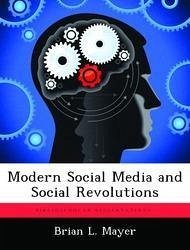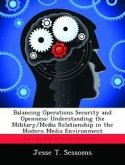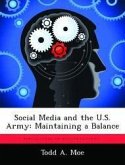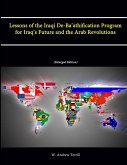The emergence of social media platforms as a means of communication and information sharing marks a fundamental change to how societies interact. This new form of media played a formative role in the organization of mass uprisings and demonstrations known as the "Arab Spring" that took place in the Middle East and North Africa in 2011. The study draws data from research in social revolution, social network theory, and mass communications to develop a new model to explain social media's function in the organization and execution of social revolutionary activities. The model integrates DeFronzo's five components of social revolution with Barabasi's social network theory. Shirky and Roy's social media engagement work to explain interaction between the separate groups. The study applies data from the 2011 Egyptian Revolution to test the model. Findings from this research show the model sufficiently identifies social media use across a wide range of groups within a society and maps their respective interaction between online social networks and the occurrence of physical events such as mass demonstrations and similar political unrest. Given limitations in respect to time and the complex variables associated with social problems within such a large scale, this study is unable to definitively predict the extent to which certain groups are likely to respond within the social domain as well as at the state level. This study provides an acceptable theoretical model to serve as the basis for future research in social revolutionary activities.
Hinweis: Dieser Artikel kann nur an eine deutsche Lieferadresse ausgeliefert werden.
Hinweis: Dieser Artikel kann nur an eine deutsche Lieferadresse ausgeliefert werden.








